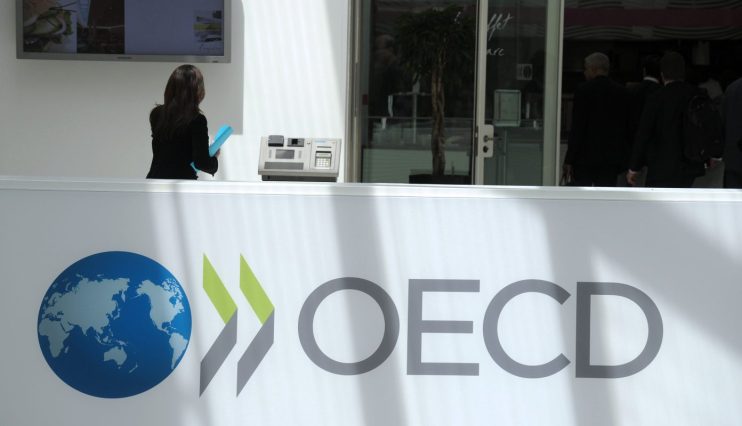OECD: Global growth in 2019 will be worst since financial crisis

The global economy is set to grow at its slowest pace since the financial crisis this year, the OECD has said, warning that governments are failing to adequately tackle the problem.
In a gloomy update to its forecasts, the Paris-based organisation said countries were also failing on tackling climate change, the digitisation of economies and a breakdown of the rules-based global order.
Read more: The economy is slowing – can central bankers fight the next downturn?
The world economy is set to grow 2.9 per cent this year and in 2020, the OECD said, the weakest figures in 10 years. In 2021, growth is predicted to rise to just three per cent, down from the 3.5 per cent rate expected a year ago.
China’s slowdown will continue, with growth slipping to 5.5 per cent in two years’ time. This compares to the 6.6 per cent growth seen in 2018, which was already the slowest since 1990.
Growth in the UK will fall to one per cent in 2020 – the worst in a decade – if Boris Johnson’s Brexit deal is passed by 31 January. It would pick up somewhat to 1.2 per cent in 2021, the OECD said.
“An exit from the EU without an agreed deal would significantly damage the economy,” the report said.
The broad-based slowdown in the global economy has been driven in large part by US-China trade tensions and a subsequent slump in investment.
To tackle it, the OECD said countries must spend more to kickstart their economies and shake off their reliance on central banks.
Central banks’ loose policies have “paved the way for structural reforms and bold public investment to raise long‑term growth” but very little action has been taken by governments, said OECD chief economist Laurence Boone.
She said: “Fiscal policy has been only marginally supportive, and not especially of investment.”
Yet the OECD report warned that a deterioration in global growth reflected “unaddressed structural changes more than any cyclical shock”.
Read more: Economic insecurity the ‘new normal’ as Brits fear for living standards
“Climate change and digitalisation are ongoing structural changes for our economies. In addition, trade and geopolitics are moving away from the multilateral order of the 1990s,” it said.
Boone said: “It would be a policy mistake to consider these shifts as temporary factors that can be addressed with monetary or fiscal policy: they are structural.”
“In the absence of clear policy directions on these four topics, uncertainty will continue to loom high, damaging growth prospects.”
(Image credit: Getty)